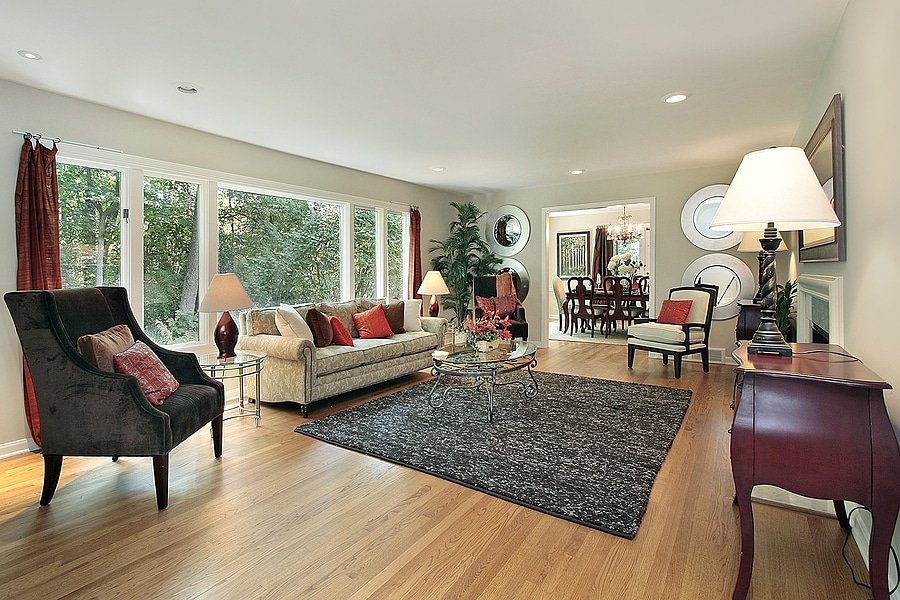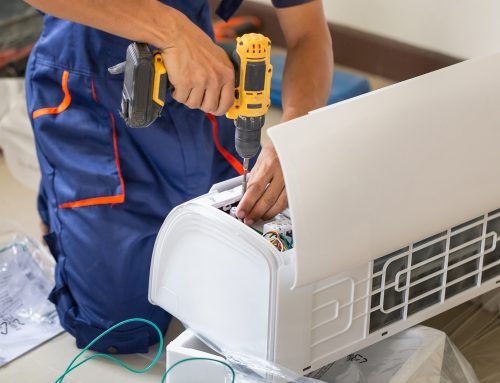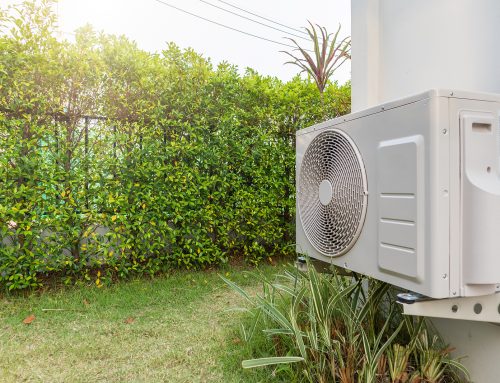Which air conditioning system is best for your home or business?
Truth be told, that question is a lot harder to answer than you might initially think – there’s a huge range of factors we need to look at when choosing the system that’s most appropriate for your home.
This is what we in the air conditioning business call system design.
And one of the first things we look at when we start the system design process is crunch the numbers.
Bigger, more voluminous rooms require a more powerful air conditioning system to keep them cool, and vice-versa. And when it comes to air conditioning installation Brisbane, you’ll need to start by calculating how big your room is.
Here’s how the formula works…
What is our air conditioning calculation formula?
Using the formula is simple, so don’t worry if you never excelled in high school maths – to start, you’ll want to first calculate the room’s floor size.
The next step is simple: just multiply the result by 150.
Why? Well, as a general rule, each square metre of area requires approximately 150 watts to cool effectively. With that in mind, the air conditioning calculation formula boils down to:
(Room floor area x 150 watts) / 1000 = air conditioner size in Kw
Say you have a room that’s 7 metres long and 6 metres wide – in this case, you would need 6300 watts, or 6.3Kw worth of cooling.
Of course, this formula assumes that your home has a standard 2.4 metre ceiling if you have a higher ceiling, you’ll need to tweak the numbers.
As a general rule, each additional 30cm of room height adds an additional 10 watts to the formula, so:
- 2.7 metre ceilings = 160 watts
- 3 metre ceilings = 170 watts
The best thing about it is that when you know how the formula works, you too can have a rough idea of how powerful your cooling will need to be!
And once you know that, you can start doing some initial research into different systems.
Why it’s so important to follow the air conditioning sizing guide
It helps keep you comfortable
An undersized system won’t be able to keep you cool, simple as that.
Following the air conditioning sizing guide means that you’ll end up with a system that’s powerful enough to effectively maintain your comfort, and which won’t struggle in the Brisbane summer.
The formula gives you a minimum size for your air conditioning system – as long as you choose a system that meets that number, you won’t have to worry about things getting too warm in your home,
The sizing guide ensures your system doesn’t wear out prematurely
That’s because an oversized system can actually wear out faster!
It’s the startup process that puts the most strain on your air conditioning system and its components.
The problem with oversized air conditioners is that they cool down your home too quickly. That means they’ll need to stop and start more frequently, and as a result, they will wear out faster.
It’ll help you save money
An underpowered air conditioning system needs to run for longer to deliver the same cooling.
At the same time, an overpowered system will wear out faster, thanks to frequent stop-start operation.
By selecting the correct system right off the bat, you’ll be able to save money by avoiding the more frequent air conditioning repairs that can come with an oversized system, as well as the energy bills that come with relying on an underpowered system.
Not only that, but you won’t find yourself thinking “maybe we should get the air conditioning replaced” a couple of summers down the line!

The air conditioning calculator is a great starter – however, it isn’t the be-all, end-all
The air conditioning sizing guide is just that – a guide.
When it comes to selecting an air conditioning system that’s perfect for your home, room volume is only one of the factors we need to look at.
Other than that, we’ll also need to worry about things like:
- Insulation quality
- Windows
- Sunlight
- Room orientation
Another thing that’s important when designing your air conditioning system is accommodating for usage.
While on paper your room may only require a certain air conditioner size, the way you use it can change the equation, so to speak.
For example, certain appliances and equipment will require a slightly more powerful system to compensate for higher temperatures. For example, kitchens and home gyms tend to run hotter than other rooms.
Another thing to think about is how many people use the room.
People radiate heat throughout the day – for example, an average male gives off 100-120 watts of heat energy while at rest.
A room like a living room will often see the entire family using it at once – something that can cause issues if you only rely on the air conditioning calculation formula.
System design is crucial
Call a professional for air conditioning in Brisbane
Whether it’s an air conditioning upgrade, installation or repairs for an existing air conditioning system in Brisbane, our team’s mission remains the same: to keep you comfortable, and to ensure that you get the perfect air conditioning solution.
The key to that is a system that’s the right size for your needs.
While you can get a rough idea of what you’ll need to stay comfortable, the only way to get what you really need is by consulting a professional to inspect your home.
Whether it’s a split-system design or a ducted air conditioning system, it’s crucial that you get a professional’s opinion when planning air conditioning in Brisbane.
And, that’s something our mobile tech team excels at.
Tri-Tech has built its name on offering exceptional service. This extends beyond our skill at performing air conditioning installation – we’re proud of our in-depth system design process.
We look at a whole range of different factors, ranging from the obvious to the most obscure things that can affect your comfort
It’s this comprehensive approach that’s earned us such a good rep!
Find out how we can help you prepare for summer – get in touch with our mobile tech team on (07) 3394 0222, or click here to touch base online.









